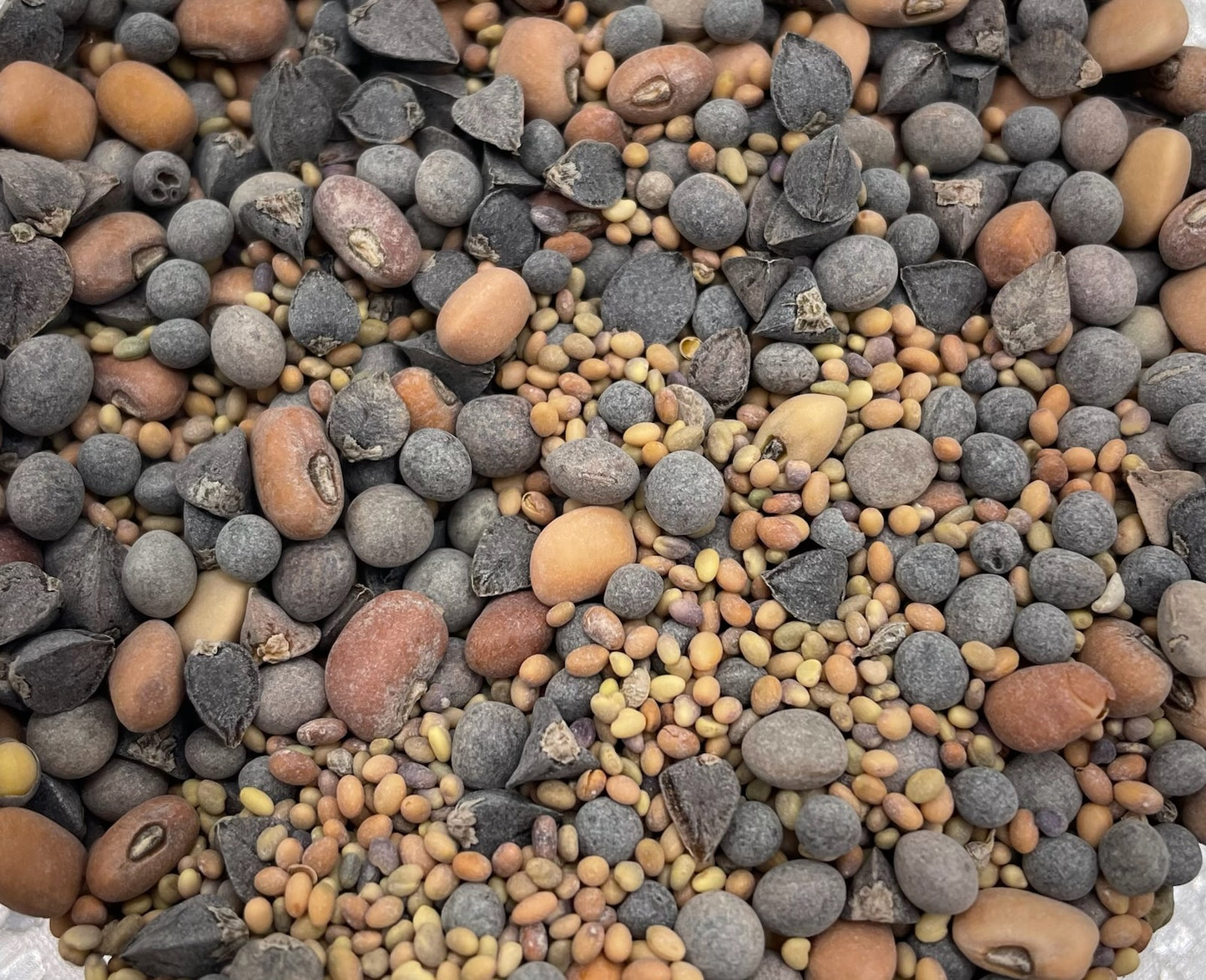Bug Out Beneficials
Cover Crop
Cover Crop
Couldn't load pickup availability
Our 7 seed blend of various clovers, buckwheat, vetch and cow peas will help take your garden to the next level. Keep those annoying weeds away while adding beneficial nutrients to your soil!
Our Blend:
- Crimson Clover
- Medium Red clover
- Yellow Sweet Clover
- Mancan Buckwheat
- Hairy Vetch
- Common Vetch
- Cow Peas - Red Ripper
Benefits
-
Weed Suppression: Cover crops compete with weeds for light, water, and nutrients, effectively suppressing weed growth. This reduces the need for manual weeding or herbicide use.
-
Soil Erosion Control: Cover crops help prevent soil erosion by shielding the soil surface from wind and water erosion. Their root systems also help hold the soil in place, particularly during heavy rains or strong winds.
-
Soil Improvement: Different cover crops contribute variously to soil health. Leguminous cover crops, like clover and vetch, fix atmospheric nitrogen into the soil, enriching it for subsequent crops. Other cover crops, like rye and oats, add organic matter to the soil as they decompose, improving soil structure and fertility.
-
Nutrient Management: Cover crops can scavenge excess nutrients in the soil, such as nitrogen, that might otherwise leach into groundwater or runoff into nearby water bodies. When these cover crops are incorporated back into the soil, they release these nutrients in a form that subsequent crops can utilize.
-
Pest and Disease Management: Some cover crops, like mustard, marigold, and rapeseed, have biofumigant properties. They release natural compounds that can suppress certain pests, diseases, and soil-borne pathogens, reducing the need for chemical treatments.
-
Increased Biodiversity: Introducing cover crops adds diversity to the garden ecosystem, which can attract beneficial insects, birds, and microorganisms. This biodiversity can help maintain ecological balance and reduce pest pressures.
-
Water Management: Cover crops can improve water infiltration and retention in the soil, reducing runoff and soil compaction. This helps conserve water and ensures more efficient use by garden plants.
-
Season Extension: Some cover crops, such as winter rye and hairy vetch, can be planted in the fall and survive through the winter. They continue to protect the soil and provide benefits until they are terminated in the spring, allowing for earlier planting of main crops.
Overall, cover cropping is an effective and sustainable practice that promotes soil health, weed suppression, nutrient management, and biodiversity, ultimately leading to more productive and resilient gardens.
Share


